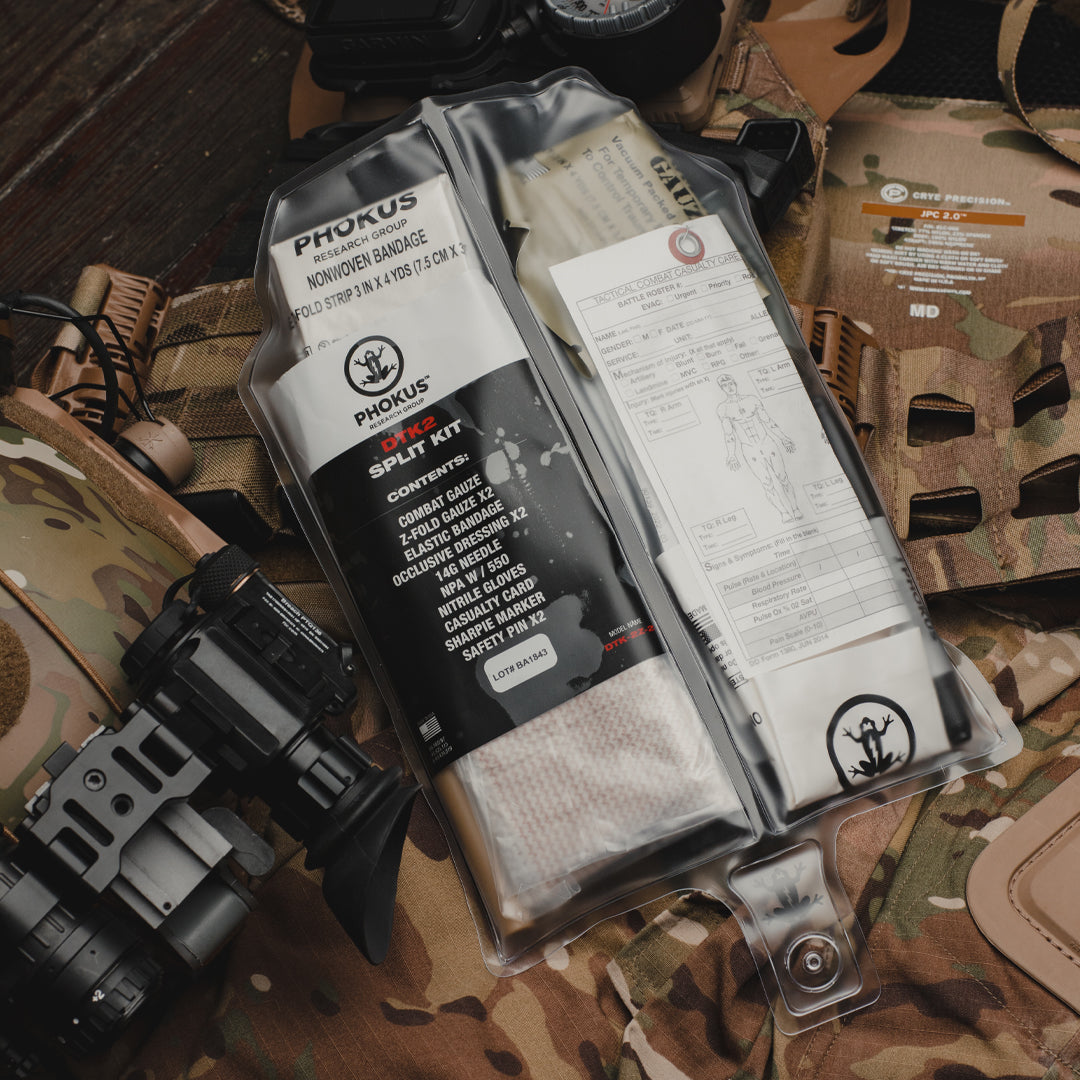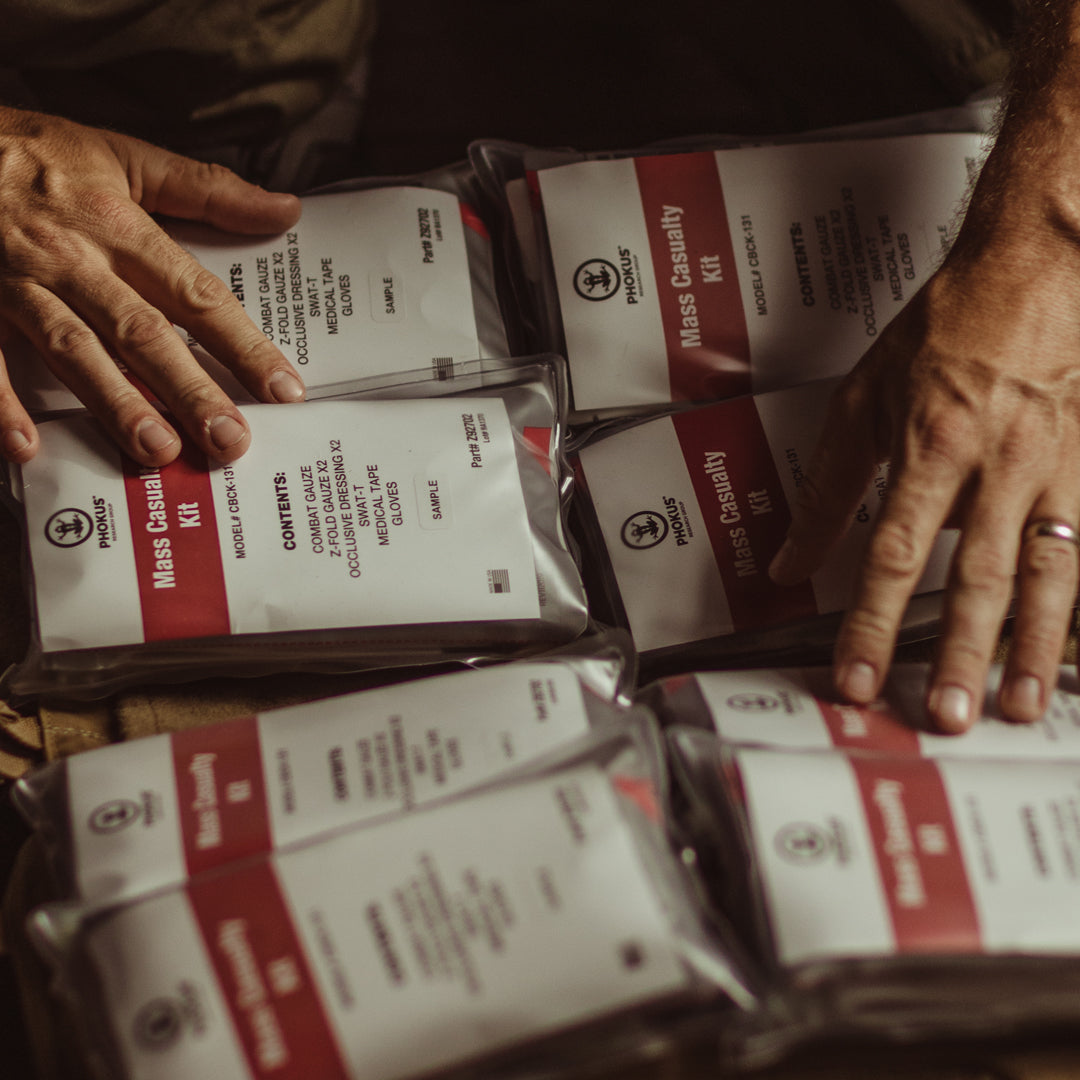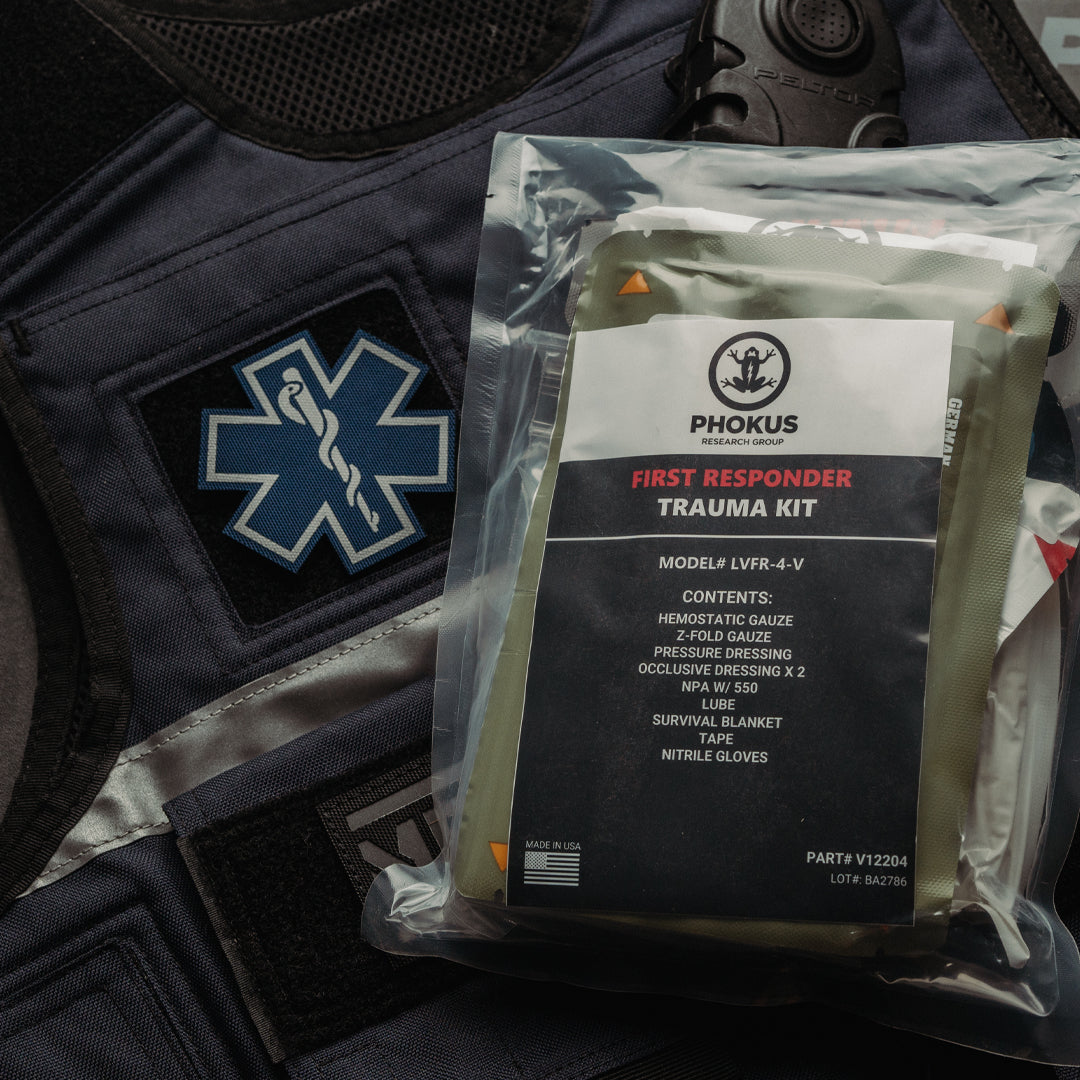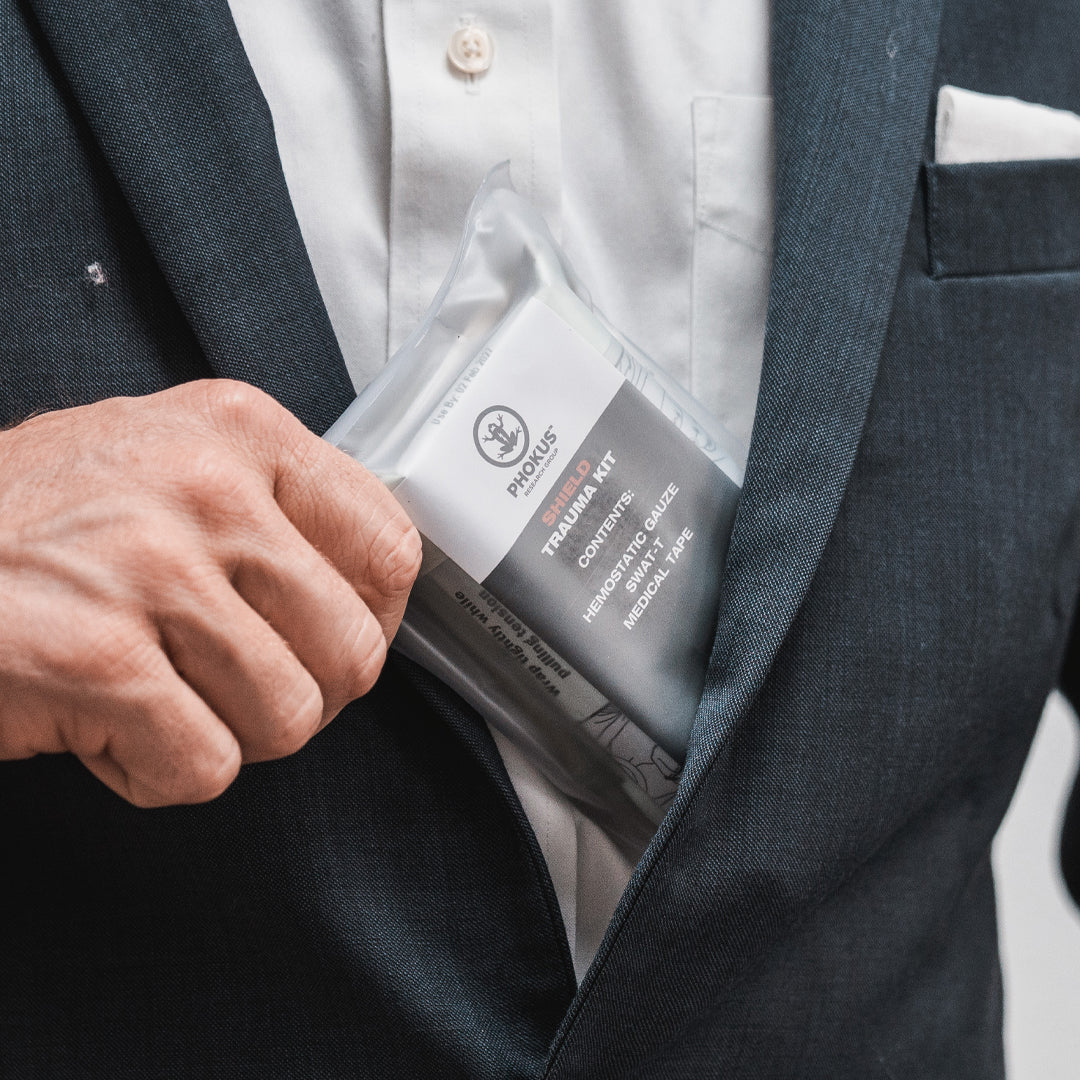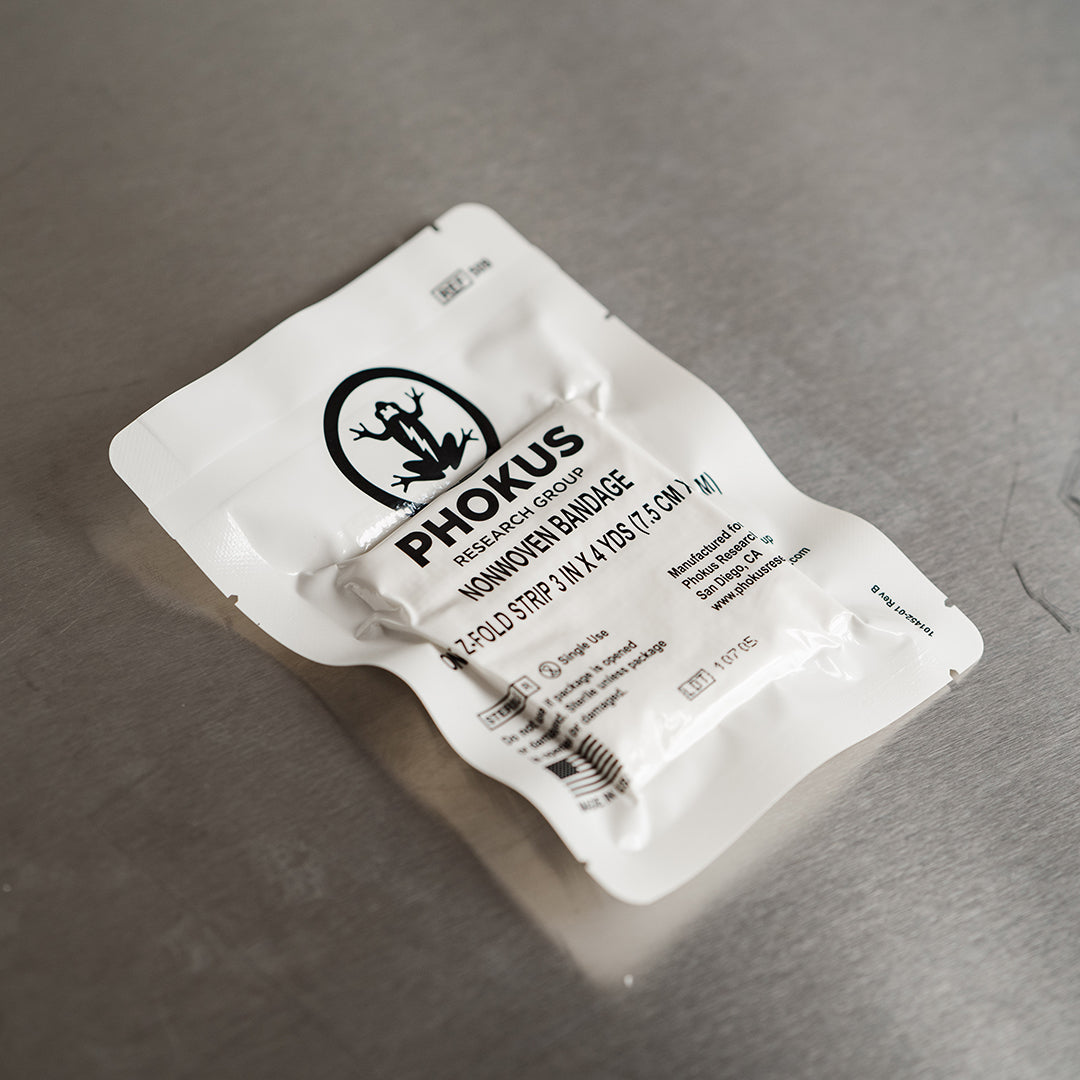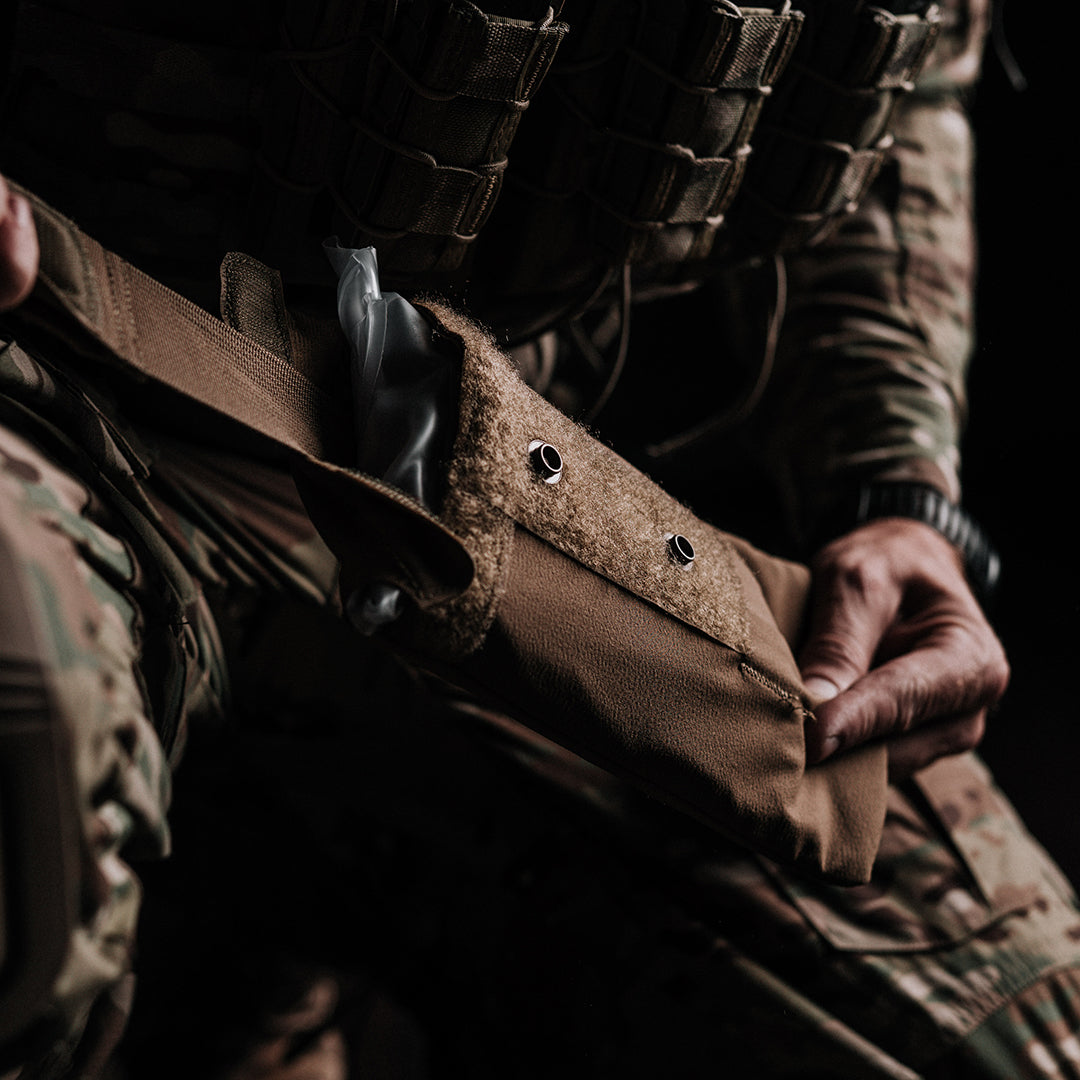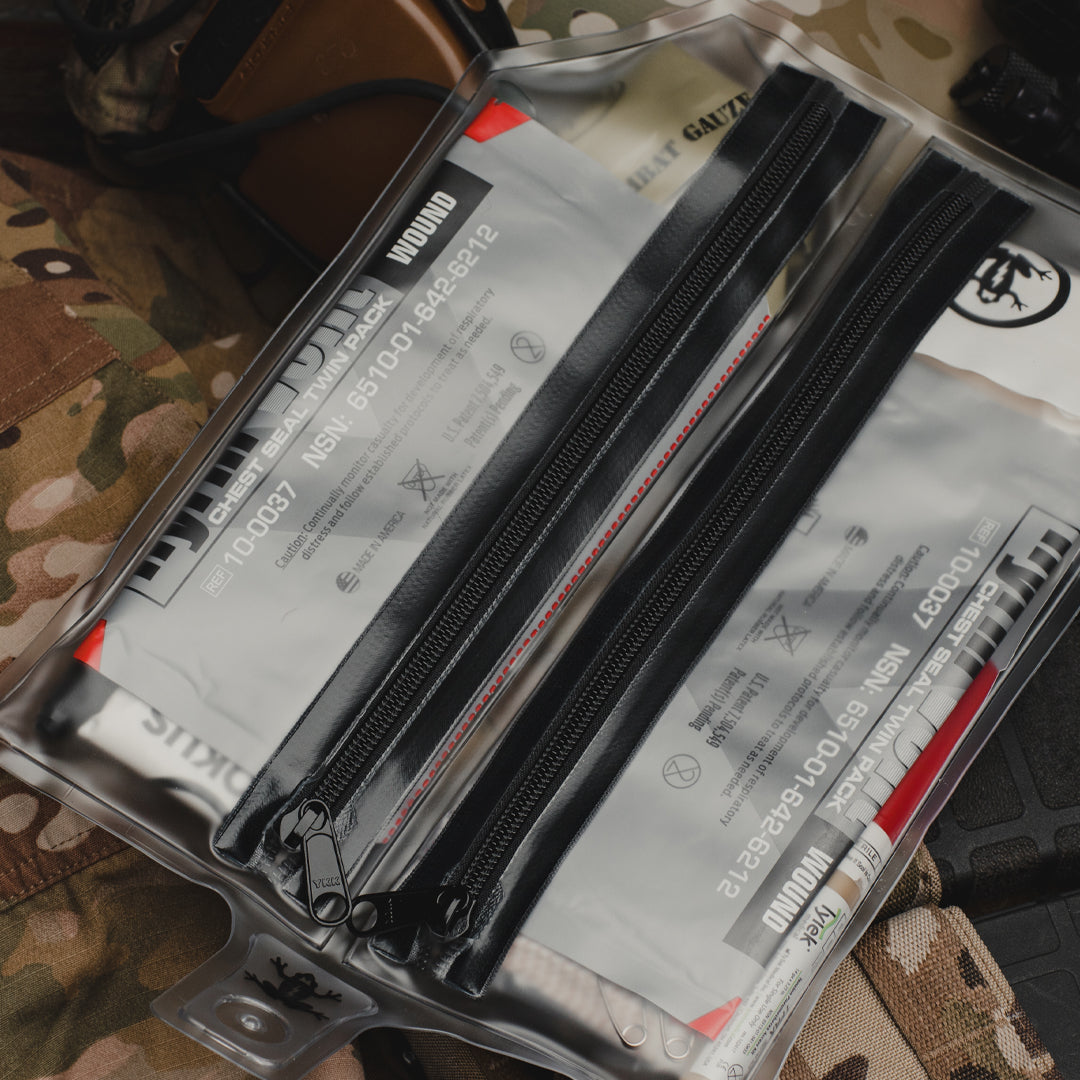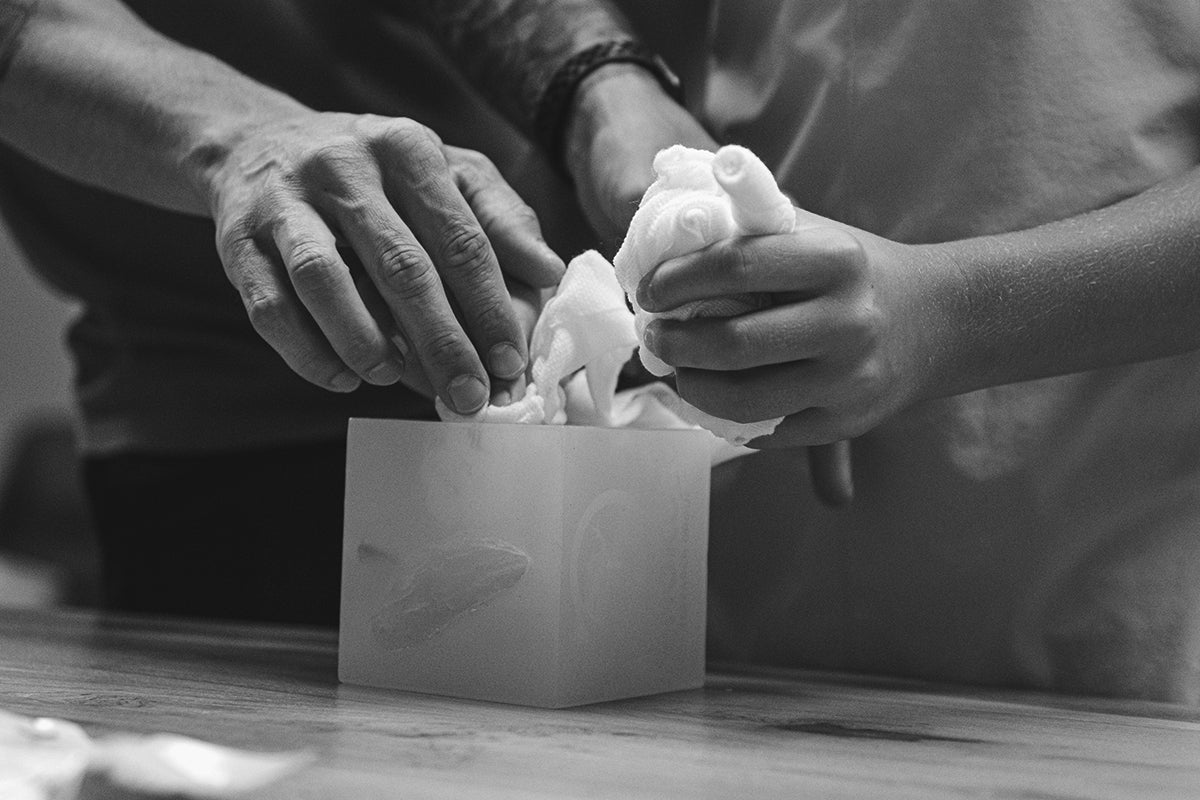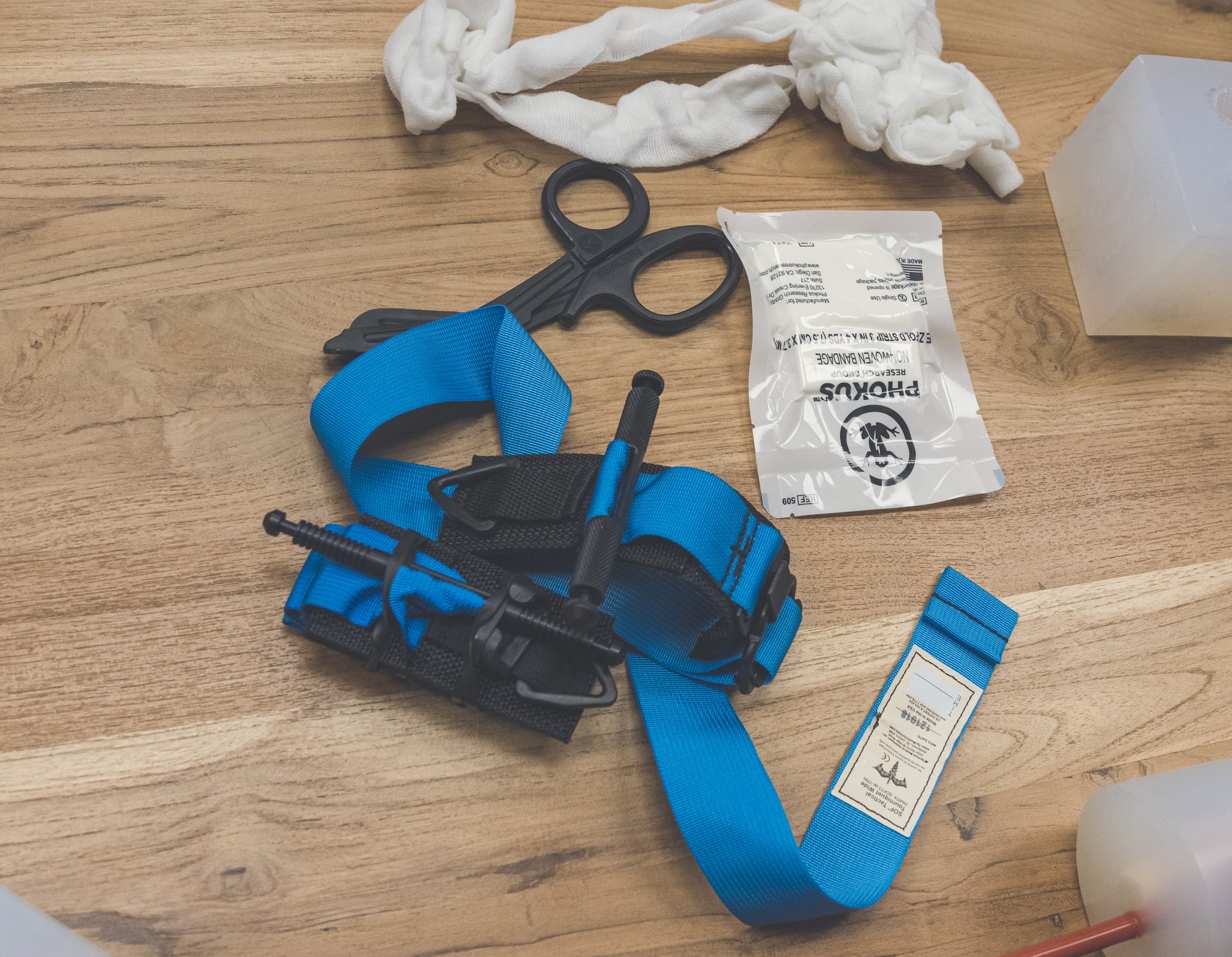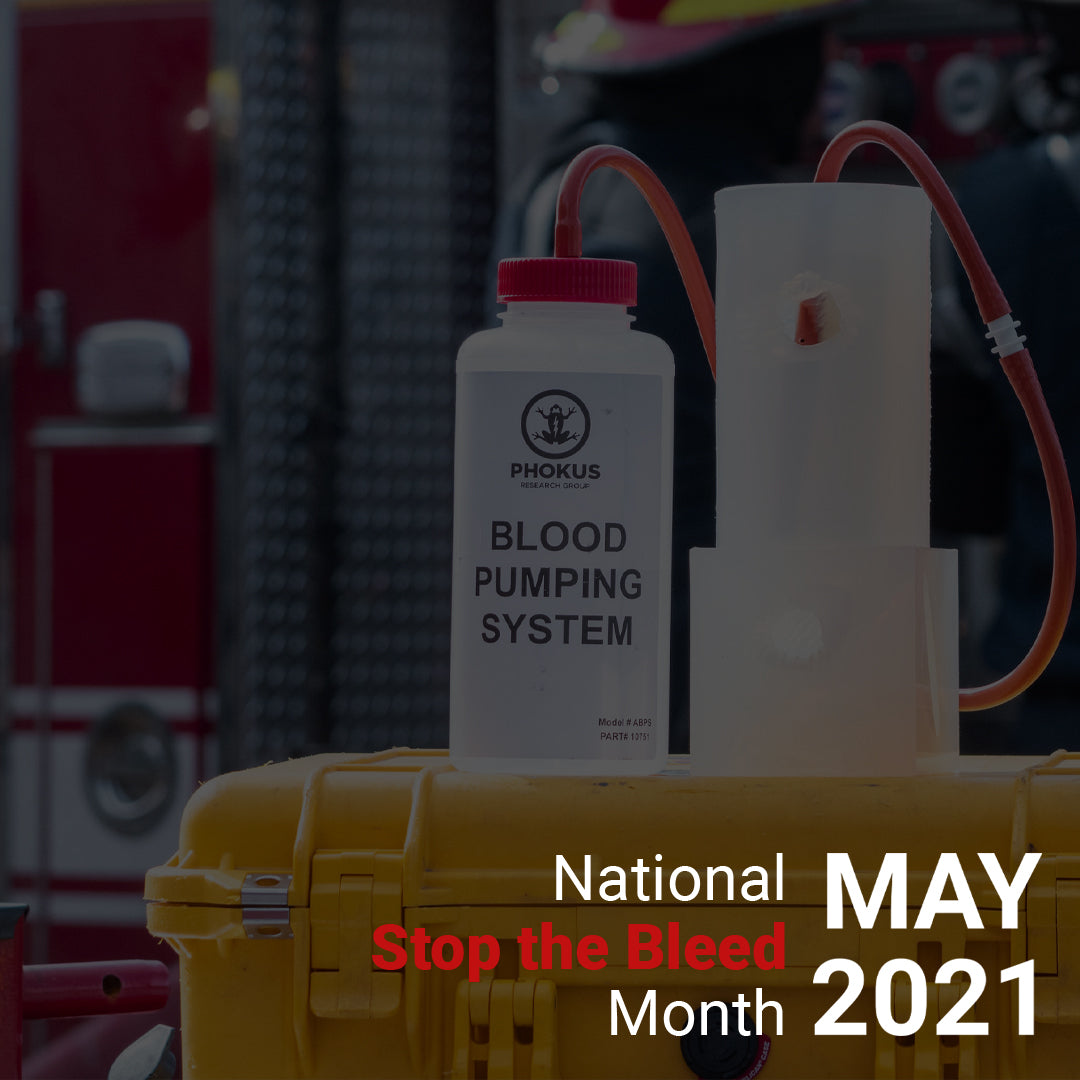Everyone reading this has someone they love— or at least like enough that they don't want them to bleed out if something bad happens. If you don't, this is where you are more than welcome to stop reading and go on to the next blog post. We're focusing on self-aid.
We do things every day that we consider normal. In reality, we are just one misstep away from a major traumatic event. We do things like driving our car at 70 miles per hour on the freeway, chopping down trees with a chain saw, using power tools to repair something around the house, changing the oil in your car, or juggling those same chain saws later that night if you perform in a circus. We tend to think about having a bleeding control kit with us when we do things outside the norm like hunting, fishing, off-roading, and rock climbing. These things have more "inherent" risks. But the fact that we do all the other daily activities repeatedly leads us down the road of "it will eventually happen."
This is where being prepared is extremely important. We need to be able to help our loved (or liked) ones well before EMS ever arrives. Now, I'm not a huge statistics fan. In fact, 48.2% of all statistics are made up on the spot... but, according to the 2020 National EMS Assessment, of the 37 million EMS calls taken, it is an average of 7 mins for EMS to arrive on the scene. That sounds great, right? But since you are here for my medical ramblings and advice, I can tell you that according to the STOP THE BLEED literature, it takes 2-5 mins to die from massive bleeding. Now, I have never in my life claimed to be good at math, but I can do 2-5 minus 7, and it comes up negative every time. Negative in this case means your loved one is dead.
Do not fret. Having the tools to save a loved one in this situation is simple. You need two things, and it's traumatic medicine's equivalent of the "chicken or the egg" situation. The two things are proper training and the right medical equipment to save a loved one's life. One without the other is just as useless as having neither!
The first one that I listed (remember BOTH are equally important), training, can be as simple as a one-hour bleeding control course taught by the American Cross, Stop the Bleed, DHS, or even your local EMS. It's all the same principles, just relayed in slightly different ways! Or you can go more complex and take a Tactical Emergency Casualty Care course through the NREMT or NAEMT. But in this case, you need the basics in stopping bleeding (I won't go into the principals now; I have already been rambling enough!!)
The second thing that you need is a proper bleeding control kit. This is something that has the proper bleeding control items like a tourniquet, hemostatic agent, gauze, and a bandage (Again, I won't go in-depth here, I'll do that in another post). This isn't the kit you got at the grocery store or the one that came in your car!! Those are first aid kits and have things for boo-boos, not massive bleeding.
So now that I have whetted your appetite with my Public Service Announcement on how to keep the people you love and, yes even like, alive this Valentine's Day, go out and do the research. Find a bleeding control class near you or investigate bleeding control kits. Remember, life is just dangerous enough that not being prepared isn't worth it.
The rambling medical mind of Phokus Research Group, signing off, and remember to "Follow the Frog."

